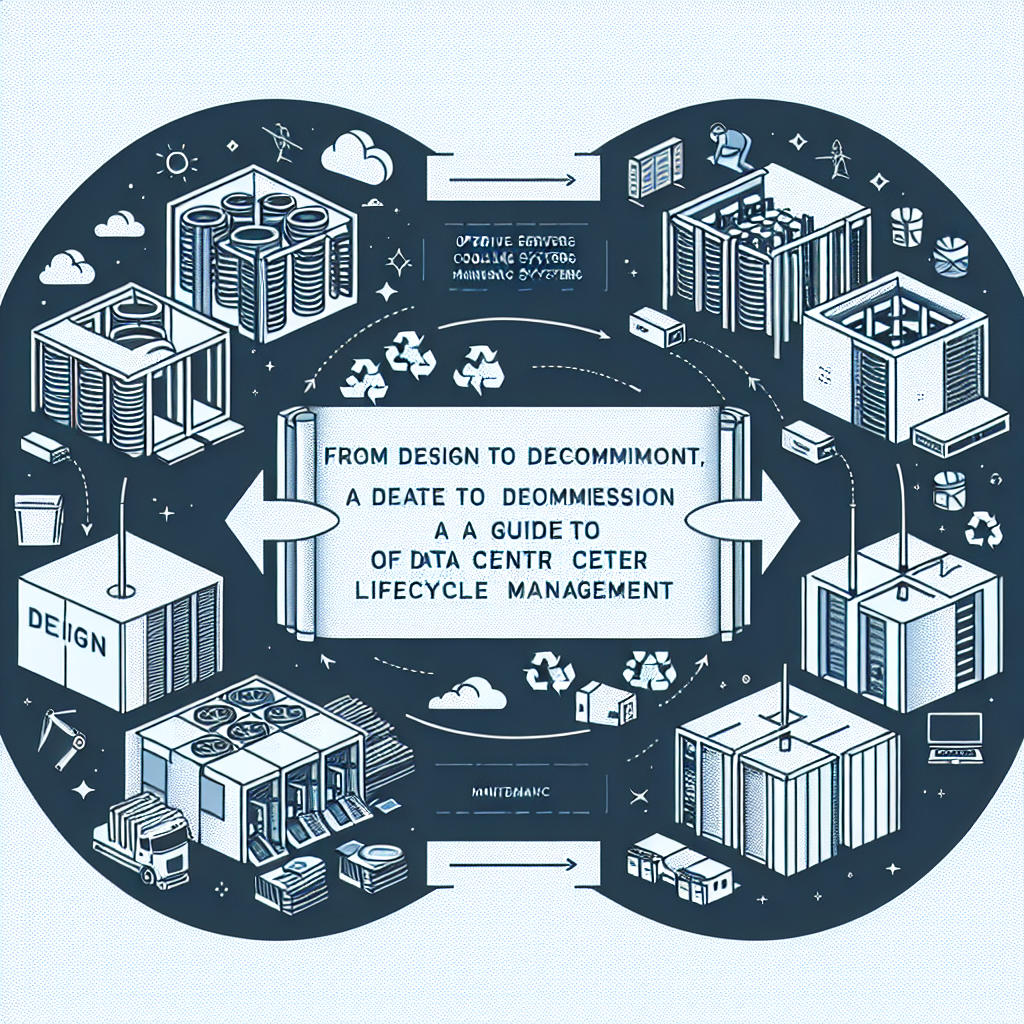Your cart is currently empty!
From Design to Decommission: A Guide to Data Center Lifecycle Management

Data centers are the backbone of modern technology infrastructure, serving as the nerve center for storing, processing, and transmitting data. As organizations continue to rely on data centers to support their operations, it becomes increasingly important to manage the lifecycle of these facilities effectively. From design to decommission, proper data center lifecycle management is essential to ensure optimal performance, efficiency, and cost-effectiveness.
The data center lifecycle begins with the design phase, where key decisions are made regarding the layout, infrastructure, and capacity of the facility. During this phase, it is crucial to consider factors such as power and cooling requirements, scalability, redundancy, and security. Working with experienced data center designers and engineers can help ensure that the facility is tailored to meet the organization’s specific needs and requirements.
Once the data center is operational, ongoing monitoring and maintenance are essential to ensure optimal performance and reliability. Regular inspections, testing, and maintenance of critical systems such as power distribution, cooling, and fire suppression are necessary to prevent downtime and ensure uninterrupted operation. Implementing a proactive maintenance schedule can help identify and address potential issues before they escalate into costly problems.
As technology evolves and data center requirements change, it may become necessary to upgrade or expand the facility. This could involve adding additional servers, storage, or networking equipment, as well as implementing new technologies such as cloud computing or virtualization. Proper planning and coordination are essential to ensure that the expansion is seamless and does not disrupt ongoing operations.
At some point, the data center may reach the end of its useful life and require decommissioning. This could be due to factors such as outdated technology, changing business needs, or the need to consolidate operations. Decommissioning a data center involves safely shutting down and removing all equipment, ensuring that sensitive data is securely erased or transferred, and properly disposing of any hazardous materials. Working with experienced data center decommissioning specialists can help ensure that the process is completed efficiently and responsibly.
In conclusion, effective data center lifecycle management is essential to ensure the long-term success and sustainability of a data center facility. From design to decommission, each phase of the lifecycle requires careful planning, monitoring, and maintenance to ensure optimal performance, efficiency, and cost-effectiveness. By following best practices and working with experienced professionals, organizations can maximize the value of their data center investments and adapt to changing technology requirements.

Leave a Reply